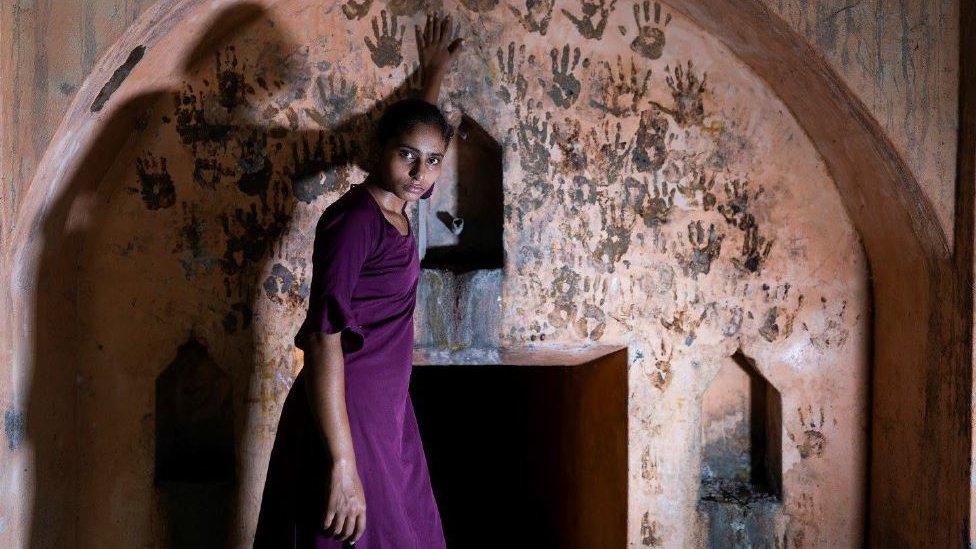Karnataka: Why a group of Indian men marched to find brides
- Published
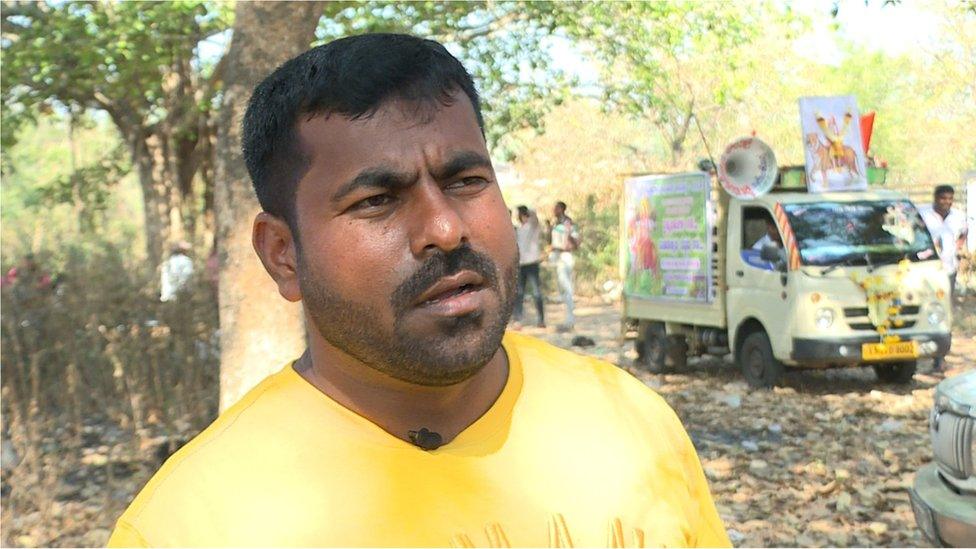
Mallesha DP says he has been rejected by around 30 women in the past few years
Last month, a group of men in the southern Indian state of Karnataka marched 120km (74.5 miles) to visit a temple so they could pray to find wives. Their endeavour sparked humour online, but activists say it points to deeper socio-economic issues in the region.
Most of the men who joined the march - it started out with 30 participants and ended with 60 - were farmers from Karnataka's Mandya district. The sex ratio at birth in the area has been skewed for decades - campaigners say that is one reason why many men find it hard to get married. Others include dwindling farm incomes and women exercising different choices from earlier generations.
Mallesha DP was one of the participants in the Brahmacharigalu padayatra - the march of the bachelors - to Male Mahadeshwara temple, whose devotees believe their prayers will be fulfilled.
"When I should have fallen in love, I was busy working. I made money," he says. "Now that I have everything in life I cannot find a girl to marry."
Mr Mallesha is only 33, but says he's already considered to be past the ideal age for marriage in his area.
Shivaprasad KM, one of the organisers, says more than 200 men had signed up to be part of the march when they first announced it.
"Many backed out because local media presented our case in a negative manner," he says.
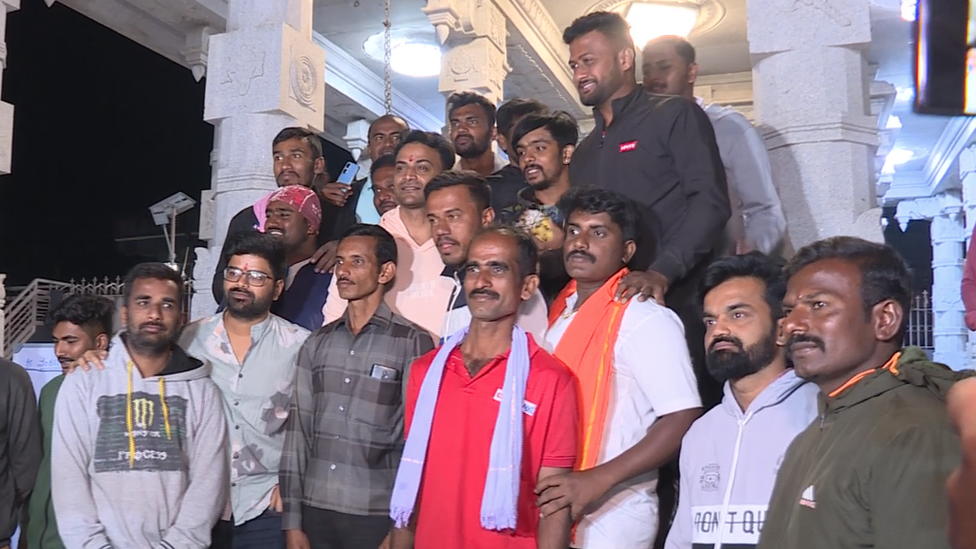
An organiser says more than 200 men signed up for the march but many dropped out due to the tone of the media coverage
Mandya is a fertile, well-irrigated region, with sugarcane being one of the major crops grown here. But falling farm incomes have made the profession less desirable.
"People think young men from farming families have uncertain income," says Krishna, 31, a participant.
Mr Mallesha says over the past few years, he has been rejected by around 30 women, who cited his profession and his living in a rural area as the reasons.
"Land holdings in our area are small and the earnings are not much," says Mr Shivaprasad, adding that people who who have another income source such as a business are able to manage better.
While the men were walking to the temple, another group of farmers in the district were protesting, demanding better prices for their sugarcane produce.
"Nobody understands that the prices of all inputs have gone up by a lot," says Darshan Puttanaiah, a farmer leader.
Activists also blame patriarchal attitudes for the current imbalance. Around the time the participants of this march were born, campaigns had begun in the state to address the region's skewed sex ratio.
"[But] even after the pre-natal sex determination test was banned [in 1994], sex-selective abortions continued to take place in these areas, says Nagrevakka, a local activist.
"Even now, in the neighbouring play school for children, you will find there are 20 girls to 80 boys," she says.
According to the last available Census figures, Mandya's sex ratio had worsened to 960 females to 1,000 males in 2011, from 971:1,000 in 2001.
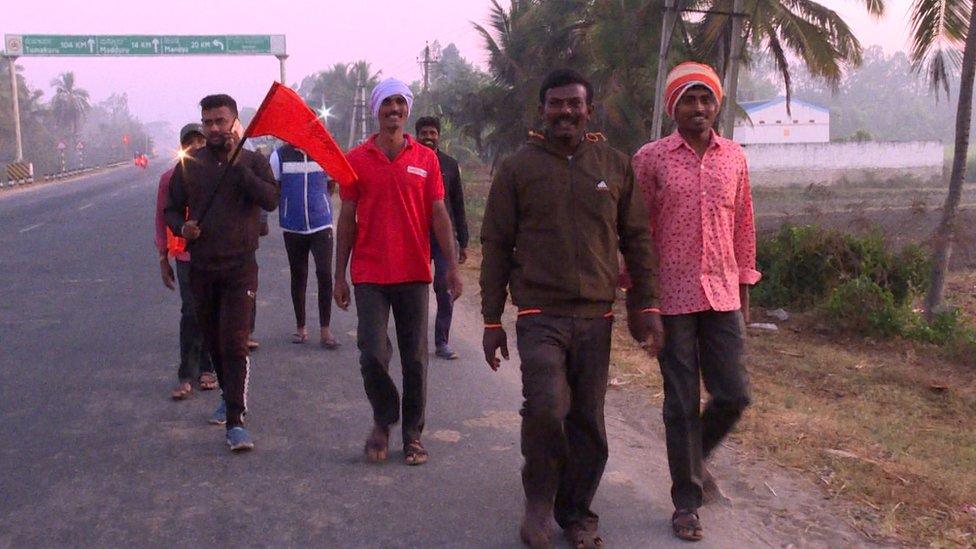
The march, which started with 30 men, ended with 60 reaching the temple
And women are also making different choices.
Jayasheela Prakash, who is originally from Mandya but now lives on the outskirts of Bengaluru city with her family, says she "personally" prefers to live in a village because it's close to nature and it's easier to form bonds with people.
Yet, women like her move to urban areas because it offers the promise of more freedom.
"If the women go to a farmer's family, they would be required to take permission from their husband to go out," she says. "In our generation nobody would like to depend on anyone [like that]."
But Mr Mallesha says attitudes towards women are changing in Mandya.
"The women in our households do not have to take care of the cattle and a large family," he says. His prospective bride will have to cook for a family of not more than four people, he adds.
Mr Shivaprasad says that after the march, which took three days, he received messages from farmers in similar situations from neighbouring states such as Andhra Pradesh and Kerala.
The participants are now hoping for a change in their fortunes.
"It was a very difficult walk. We prayed that all of us get married soon," Mr Mallesha says.
BBC News India is now on YouTube. Click here, external to subscribe and watch our documentaries, explainers and features.

Read more India stories from the BBC:

- Published30 April 2017
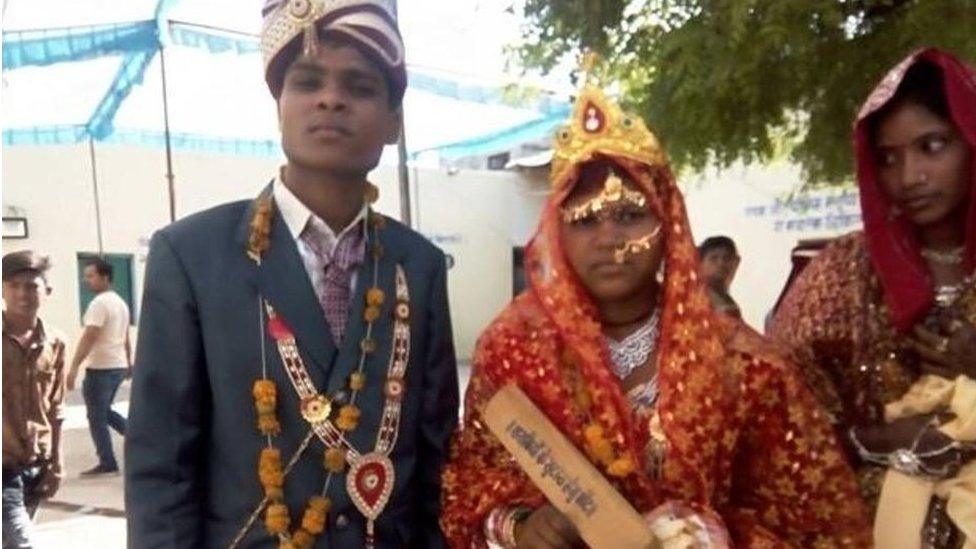
- Published1 April 2022
